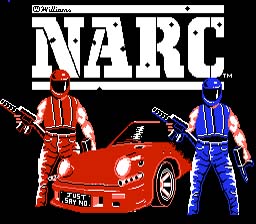If so, have you tried any of PIHKAL/TIHKAL to manage yourself?
Everyone loves a lover. Romeo loves Juliet. Therefore, Trump loves Putin.





 R16000 700MHz 8GB RAM
kanna
R16000 700MHz 8GB RAM
kanna
 R12000 300MHz SI 896MB RAM
yuuka
R12000 300MHz SI 896MB RAM
yuuka
 R12000A 400MHz V6 2.5GB RAM
R12000A 400MHz V6 2.5GB RAM
 (Acclaim) R4600 133MHz XL Graphics 32MB RAM
(Acclaim) R4600 133MHz XL Graphics 32MB RAM
 (Challenge S) R4600 133MHz (MIPS III Build Server)
(Challenge S) R4600 133MHz (MIPS III Build Server)



The Bandito wrote: In a few years, no doubt, you'll be able to buy a computer,
software and operating system that will match the capabilities
of your current Amiga at about the price you paid for the
Amiga way back when. But you can smile to yourself, knowing
that you were touching the future years before the rest of
the world. And that other computers and operating systems
will do with brute force what the Amiga did years before with
grace, elegance and style.
robespierre wrote: I've seen that game before...

Hakimoto wrote: Question I have is why do you need to be a chemist to manage yourself using Ps or Ts?
 Nah! The vast majority of cooking in those books is illegal in most jurisdictions as you're setting out to make a (with a high likelihood) controlled substance with the intent of human consumption.
Nah! The vast majority of cooking in those books is illegal in most jurisdictions as you're setting out to make a (with a high likelihood) controlled substance with the intent of human consumption.

 .
.

The Bandito wrote: In a few years, no doubt, you'll be able to buy a computer,
software and operating system that will match the capabilities
of your current Amiga at about the price you paid for the
Amiga way back when. But you can smile to yourself, knowing
that you were touching the future years before the rest of
the world. And that other computers and operating systems
will do with brute force what the Amiga did years before with
grace, elegance and style.
Hakimoto wrote: In fact workplace nonchalance is probably the largest danger in my field. You'd be surprised how much energy is contained in seemingly small amounts of substances that are incompatible with each other.
Hakimoto wrote: :lol: Nah! The vast majority of cooking in those books is illegal in most jurisdictions as you're setting out to make a (with a high likelihood) controlled substance with the intent of human consumption.
When I was in high school (way back when), we extracted nutmeg in a project and showed by an analytical technique called gas chromatography that there were different substances in the extract, including myristicine, which is psychoactive. But, of course, we're talking microgramme quantities here and it's not like anyone stood at the exhaust of the GC machine to inhale what came out!
As for the chemistry, "psychoactive drug chemistry" is no more or less dangerous than other organic chemistry. If you do it right, it'll work out just fine and you don't blow yourself up in the process. If you don't, well....








dexter1 wrote: I think that the word chemist in this context is a bit misleading since i think the OP means creating Pharmaceutical compounds by regular chemistry master students (of which i happen to be one). Or do Americans/Brits use the word "chemist" to designate "pharmaceutist"?
I never came close to creating something fit for human consumption. The laboratory simply is off-limits for anything human consumable. Well, except for perhaps my synthesis of Cinnamon acid assignment. All the folks at the laboratory were sniffing at me and my cabinet.





 R16000 700MHz 8GB RAM
kanna
R16000 700MHz 8GB RAM
kanna
 R12000 300MHz SI 896MB RAM
yuuka
R12000 300MHz SI 896MB RAM
yuuka
 R12000A 400MHz V6 2.5GB RAM
R12000A 400MHz V6 2.5GB RAM
 (Acclaim) R4600 133MHz XL Graphics 32MB RAM
(Acclaim) R4600 133MHz XL Graphics 32MB RAM
 (Challenge S) R4600 133MHz (MIPS III Build Server)
(Challenge S) R4600 133MHz (MIPS III Build Server)
dexter1 wrote: I think that the word chemist in this context is a bit misleading since i think the OP means creating Pharmaceutical compounds by regular chemistry master students (of which i happen to be one). Or do Americans/Brits use the word "chemist" to designate "pharmaceutist"?

(1)Wikipedia wrote: Alexander Theodore "Sasha" Shulgin (June 17, 1925 – June 2, 2014) was an American medicinal chemist, biochemist, organic chemist, pharmacologist, psychopharmacologist, and author.
 Again, mileage may differ, but when I read your "pharmaceutist" the first thing I had to think of was a pharmaceutical chemist and not a pharmacist.
Again, mileage may differ, but when I read your "pharmaceutist" the first thing I had to think of was a pharmaceutical chemist and not a pharmacist.


The Bandito wrote: In a few years, no doubt, you'll be able to buy a computer,
software and operating system that will match the capabilities
of your current Amiga at about the price you paid for the
Amiga way back when. But you can smile to yourself, knowing
that you were touching the future years before the rest of
the world. And that other computers and operating systems
will do with brute force what the Amiga did years before with
grace, elegance and style.